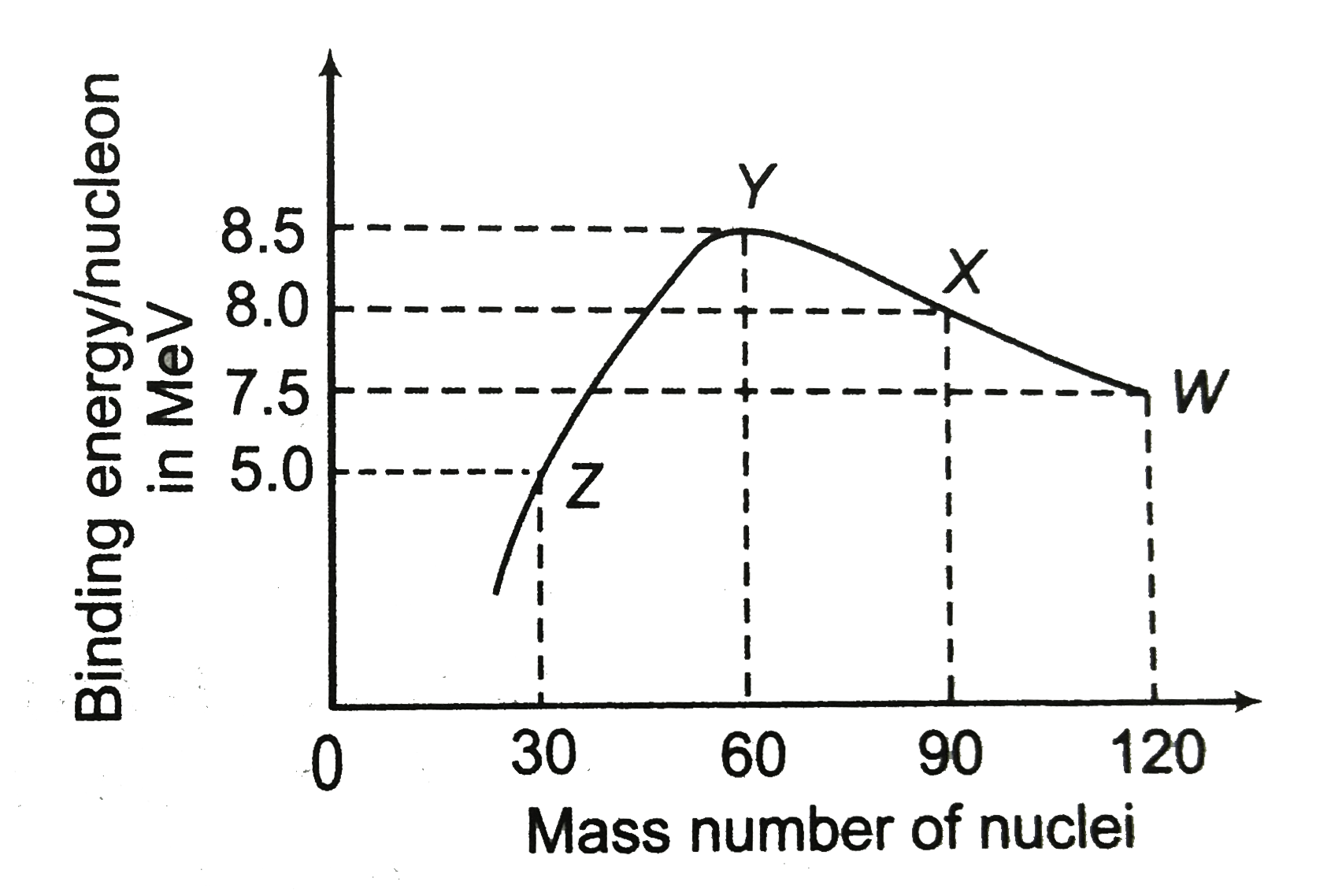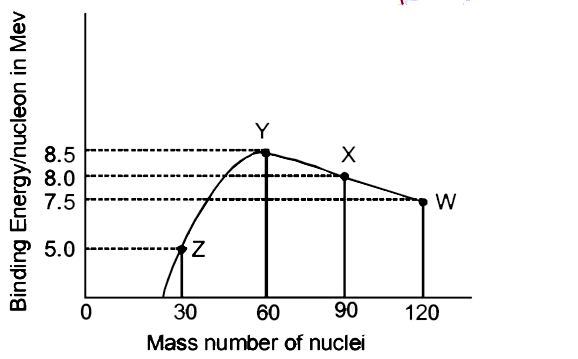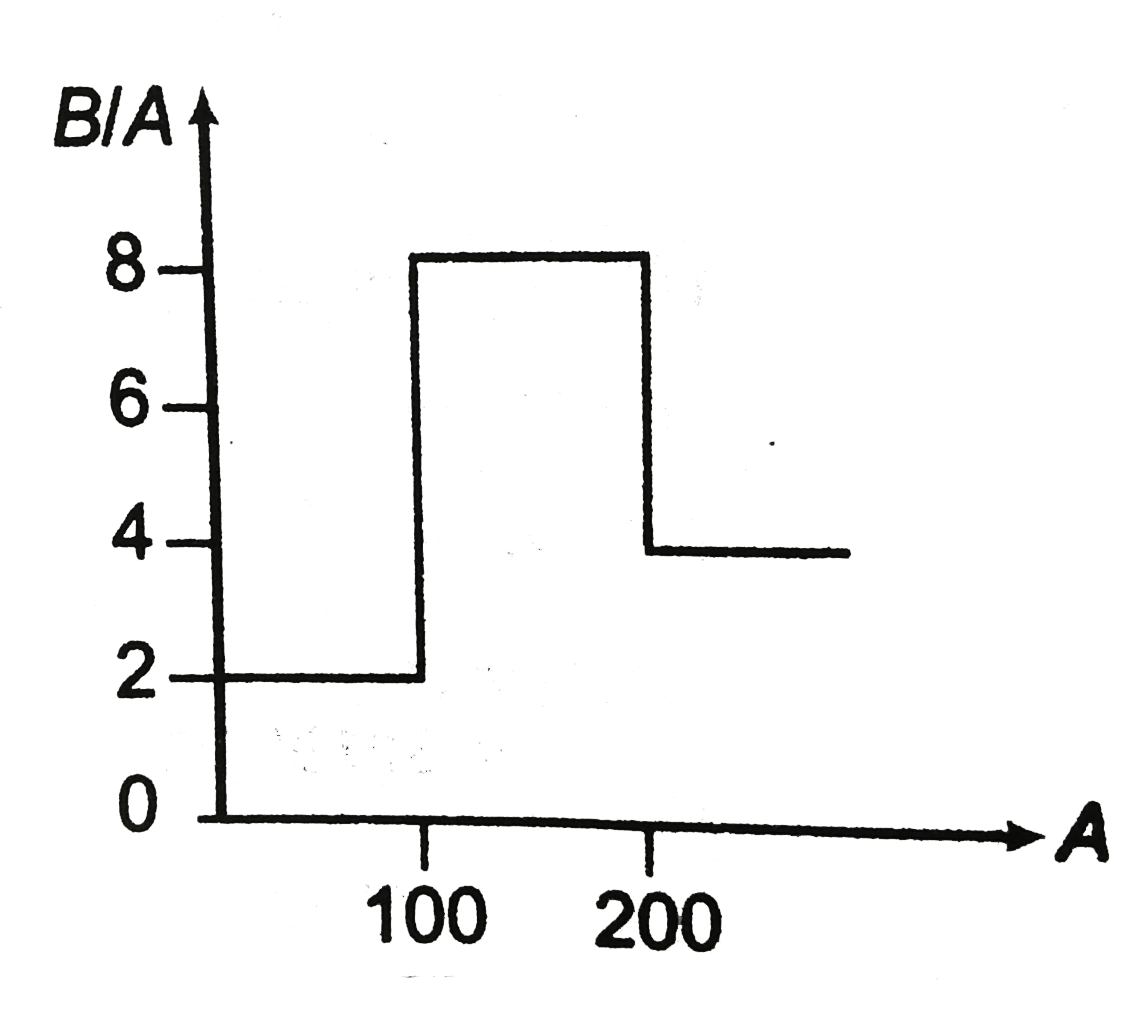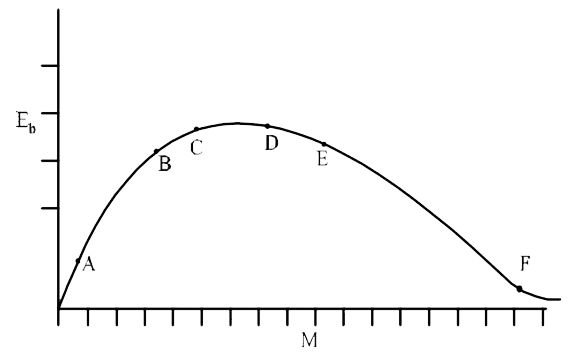Binding energy per nucleon versus mass number curve for nuclei is shown in figure. W, X, Y, and Z are four nuclei indicated on the curve. The process that would release energy is
(a) Y→2Z
(b) W→X+Z
(c) W→2Y
(d) X→Y+Z

Y→2Z
W→X+Z
W→2Y
X→Y+Z
The correct Answer is:C
Step by step video & image solution for Binding energy per nucleon versus mass number curve for nuclei is shown in figure. W, X, Y, and Z are four nuclei indicated on the curve. The process that would release energy is (a) Yrarr2Z (b) WrarrX+Z (c) Wrarr2Y (d) XrarrY+Z by Physics experts to help you in doubts & scoring excellent marks in Class 12 exams.
Updated on:21/07/2023Topper's Solved these Questions
- NUCLEAR PHYSICSBOOK - CENGAGE PHYSICS ENGLISHCHAPTER - NUCLEAR PHYSICSEXERCISE - ddp.5.3
15 Videos
- NUCLEAR PHYSICSBOOK - CENGAGE PHYSICS ENGLISHCHAPTER - NUCLEAR PHYSICSEXERCISE - ddp.5.4
15 Videos
- NUCLEAR PHYSICSBOOK - CENGAGE PHYSICS ENGLISHCHAPTER - NUCLEAR PHYSICSEXERCISE - ddp.5.1
14 Videos
- MISCELLANEOUS VOLUME 5BOOK - CENGAGE PHYSICS ENGLISHCHAPTER - MISCELLANEOUS VOLUME 5EXERCISE - Integer
12 Videos
- PHOTOELECTRIC EFFECTBOOK - CENGAGE PHYSICS ENGLISHCHAPTER - PHOTOELECTRIC EFFECTEXERCISE - Integer Type
4 Videos
Similar Questions
Binding energy per nucleons vs mass curve for nucleus is shown in the figure W,X,Yand Z are four nuclei indicated on the curve . The process that would release energy is

View SolutionAssume that the nuclear binding energy per nucleon (B/A) versus mass number (A) is as shown in figure. Use this plot to choose the correct choice(s) given below.
(a) Fusion of two nuclei with mass numbers, lying in the range of 1<A<50 will release energy.
Fusion of two nuclei with mass numbers lying in the range of 51<A<100 will release energy.
(c) Fission of a nucleus lying in the mass range of 100<A<200 will release energy when broken into two equal fragements.
(d) Fission of a nucleus lying in the mass range of 200<A<260 will release energy when broken into two equal fragments.

View SolutionUsing the curve for the binding energy per nucleon as a function of mass number A, state clearly how the release in energy in the processes of nuclear fission and nuclear fusion can be explained.
View SolutionIn the figure, P is the centre of the circle. Prove that: ∠XPZ=2 (∠XZY+ ∠YXZ)
View SolutionIn a nuclear reaction of α - decay, the daughter nuclei .AZX is moving with kinetic energy E. The total energy released if parent nuclei was at rest will be
View SolutionThe binding anergy per nucleon is 8.5MeV for A=120 and is 7.6MeV for A=240 (see in figure). Suppose a nucleus with A=240 breaks into two nuclei of nearly equal mass numbers. Calculate the energy released in the process.
View Solution
The above is a plate of binding energy per nucleon E0 against the nuclear mass M,A,B,C,D,E,F correspond to different nuclei Consider four reactions:
View SolutionFour nuclei of an elements undergo fusion to form a heavier nucles, with release of energy. Which of the two - the parent or the daughter nucleus - would have higher binding energy per nucleon ?
View SolutionA heavy nucleus X of mass number 240 and binding energy per nucleon 7.6MeV is split into two fragments Y and Z of mass numbers 110 and 130. The binding energy of nucleons in Y and Z is 8.5MeV per nucleon. Calculate the energy Q released per fission in MeV.
View SolutionArrange with explanation the following elements in the order of increasing ionisation energy.
X(Z = 4) , Y(Z = 5), D(Z= 6), E(Z= 11)
View Solution
